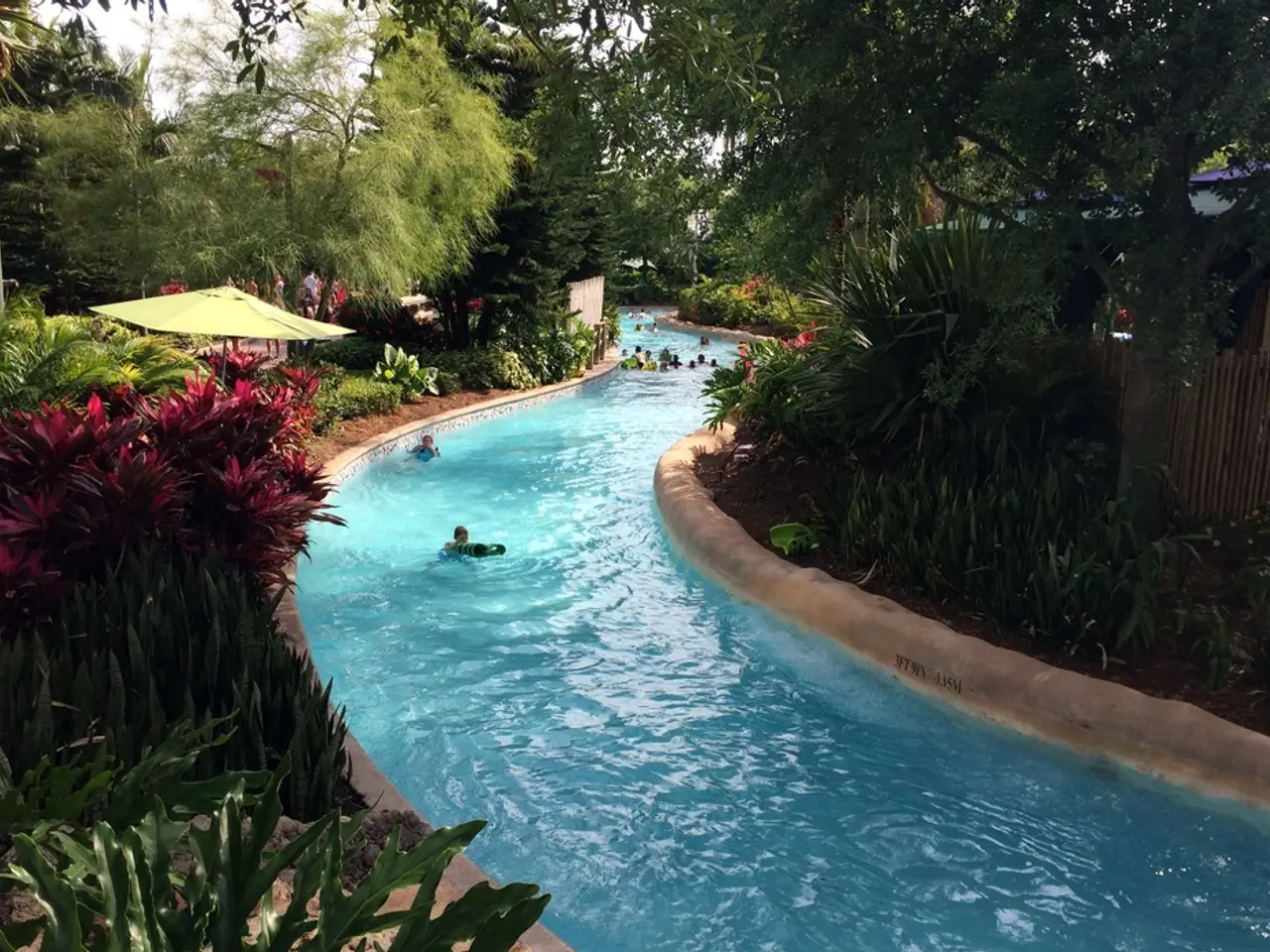Gardening Pools Regulations: Essential Guidelines Every Gardener Should Follow
=====================================================================================
In Germany, owning a swimming pool comes with a set of regulations and safety measures to ensure a safe and enjoyable experience for all. While specific details may vary by local authorities, here are some general guidelines to consider.
Building and Regulations
Constructing a swimming pool typically requires building permits, which ensure compliance with local building codes and regulations. These may include specifications for pool size, depth, and safety features. It's essential to consult with the responsible municipality before commencing construction to understand local requirements.
One aspect that may be governed by local rules rather than national regulations is water withdrawal. Local water authorities might have specific guidelines to follow regarding water usage for private swimming pools.
The placement of the pool should be planned with consideration for the distance to neighboring properties. Zoning laws and regulations often determine the minimum distance required to respect privacy fences or boundaries.
Energy Efficiency Regulations (GEG)
The Building Energy Act (GEG) in Germany emphasizes energy efficiency and renewable energies. However, indoor swimming pools are exempt from these requirements under the "production process exemption" for their heating systems.
Safety Measures
For Children
To prevent accidental entry by children, pools should be surrounded by a fence that is at least 1 meter high and difficult to climb. Continuous adult supervision is also crucial when children are using the pool. Installing alarms that alert if someone enters the pool area can be a valuable safety measure. Using pool covers or nets can prevent accidental drowning when the pool is not in use.
General Safety
Regular maintenance is essential to ensure the water is safe and clean. This includes testing pH levels, using chlorine or other disinfectants, and ensuring proper filtration. Keeping a first aid kit nearby and having a plan for emergency response, such as knowing CPR, is also important. Clearly marking the pool area with warning signs can help alert users to potential hazards.
Additional Considerations
- Pool water should be changed before the start of the season, preferably at night and before a prolonged dry period.
- Larger pools usually require a building permit.
- Approximately 2.2 million pools exist in German gardens.
- The pool should not be placed under trees to avoid increased cleaning efforts later.
- People with sensitive skin can use special oxygen instead of chlorine for pool care.
- The pool creates a source of danger for which the owner is responsible from the legislator's point of view.
- Neighbors generally have to tolerate children's noise, but it should not exceed the usual level.
- Every property owner is subject to the duty of care regarding private pools, which includes ensuring the pool is not freely accessible to children.
- During a drought, many municipalities impose limits on water withdrawal by private households, which may prohibit filling the pool.
- The pool should be cleaned more frequently in high temperatures, frequent use, or a lot of pollen.
- The pool should be covered when not in use, even if it is on a fenced property, to protect wildlife.
- A cover is necessary to protect the pool from contamination when not in use.
- Above-ground and inground pools up to 100 cubic meters are often exempt from permits, but larger pools usually require a building permit.
- Starter sets containing all necessary tools for successful water care can be practical.
In conclusion, while there are specific regulations and safety measures for swimming pools in Germany, it's crucial to consult with local authorities for precise requirements. By following these guidelines, pool owners can ensure a safe and enjoyable swimming experience for themselves and others.
In Germany, maintaining a home-and-garden, particularly one with a pool, warrants considering home-and-garden aspects like gardening, as well as the lifestyle benefits of having a pool. To that end, a homeowner may need garden tools for pool maintenance and also consider eco-friendly practices such as using special oxygen instead of chlorine for pool care to reduce environmental impact. Furthermore, investing in home-and-garden safety measures, such as pool fencing and alarms, is essential for ensuring the safety of children and general users while enjoying the pool.




